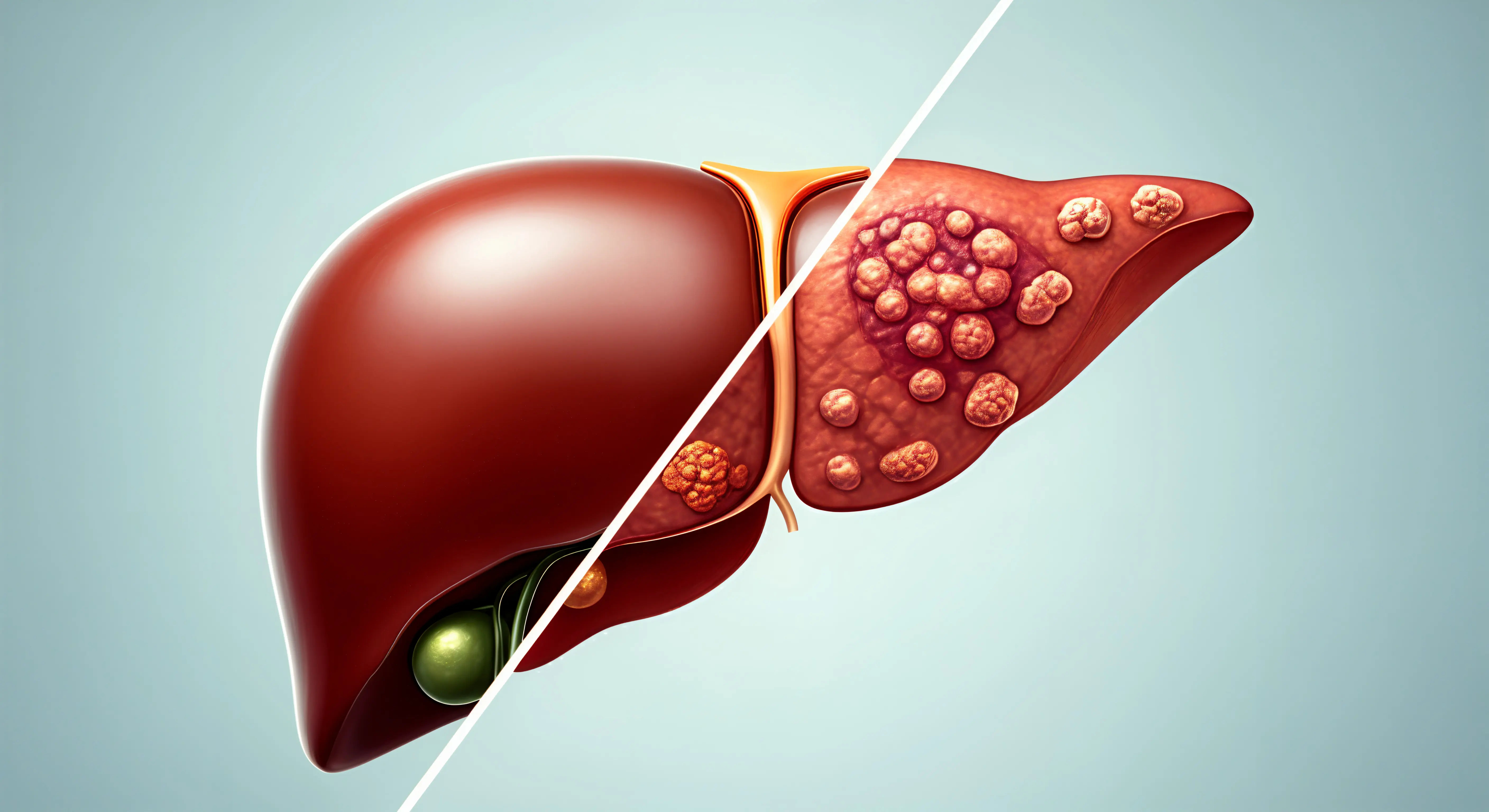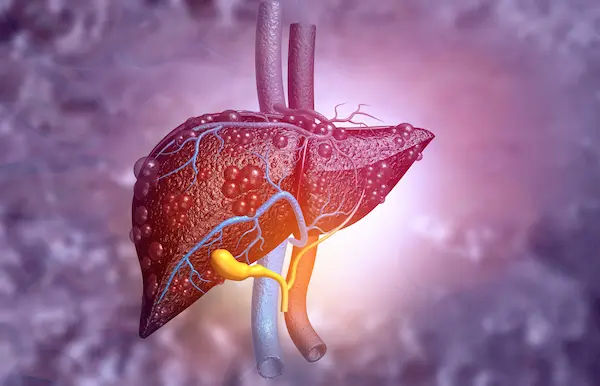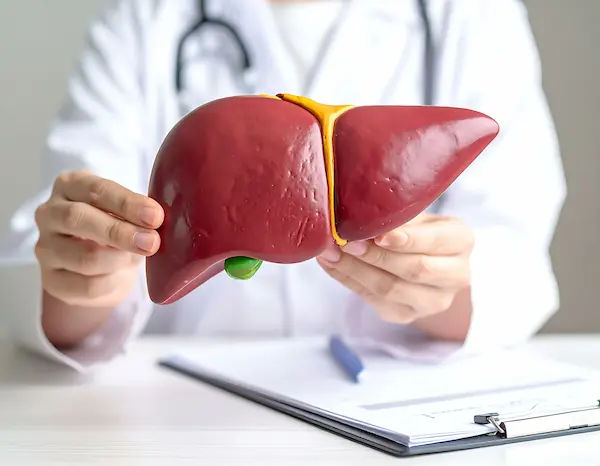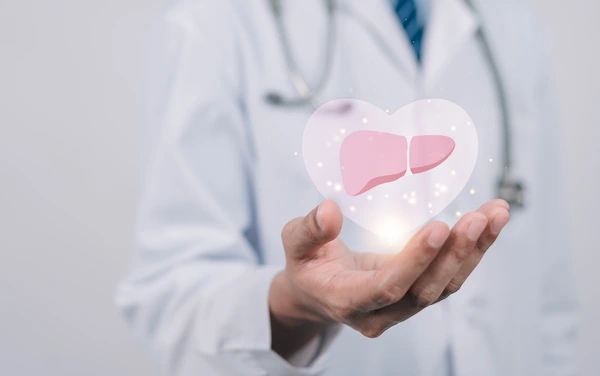Signs Of Marching Towards Healthy Liver Signs And Of Liver Damage
Discover the positive signs of a healthy liver, the warning signals of liver damage, and simple steps you can take to protect your liver for long-term health.


Introduction
Your liver is the unsung hero of your body, performing over 500 vital functions silently in the background. From
filtering toxins and processing nutrients to regulating hormones and producing bile, its health is fundamental to your
overall well-being. But because it's so resilient, we often take it for granted until something goes wrong. The journey to
optimal health is paved with the choices we make for our organs, and the liver is a critical checkpoint. This article will guide you through the positive signs of marching towards a healthy liver and, just as importantly, the critical warning
signs of liver damage you should never ignore. By understanding these signals, you can take proactive steps to support
this vital organ and ensure your body's detoxification powerhouse runs smoothly for years to come.
Understanding Your Liver; The Body's Powerhouse
Before we dive into the signs, it's crucial to appreciate what your liver does. Located in the upper right portion of your
abdomen, it's the body's largest internal organ and its primary filtration system. Think of it as a sophisticated processing plant that never closes.
Key Functions You Never Knew About
Beyond detoxification, your liver is a multitasking marvel. It metabolises proteins, fats, and carbohydrates for energy. It
produces albumin, a protein that keeps fluid from leaking out of your bloodstream. It creates clotting factors that stop
you from bleeding excessively from a cut. It also stores vitamins and iron, releasing them when your body needs them.
This incredible workload means that even a slightly sluggish liver can have wide-ranging effects on your health, which
is why recognising both positive and negative signs is so important.
Green Flags; Positive Signs of a Healthy Liver
A well-functioning liver announces its good health not through a single grand gesture, but through a symphony of well-
orchestrated bodily functions. Here’s how you know you’re on the right track.
Consistent Energy Levels and Stable Mood
When your liver efficiently converts food into stable energy, you avoid the dramatic spikes and crashes associated with
poor metabolic health. You wake up feeling refreshed and maintain steady energy throughout the day. Furthermore, a
healthy liver helps regulate blood sugar and filter out compounds that can affect brain function, contributing to a more
stable, positive mood and less brain fog.
Efficient Digestion and Healthy Metabolism
The liver produces bile, a substance essential for breaking down fats in the small intestine. If you can digest meals without excessive bloating, gas, or discomfort, it's a good sign your liver and gallbladder are doing their jobs. A healthy
liver also efficiently manages cholesterol and triglyceride levels, which is a cornerstone of a robust metabolism.
Clear Skin and Bright Eyes
Your skin is a reflection of your internal health. A healthy liver effectively removes toxins that might otherwise be
expelled through the skin, leading to fewer breakouts, allergies, and skin conditions like psoriasis. Bright, white eyes
without a yellow hue (icterus) are one of the most classic signs of a healthy liver.
Consult a Nephrologist for the best advice
Balanced Hormones and a Strong Immune System
The liver plays a key role in hormone regulation, including breaking down excess oestrogen. Balanced hormones
contribute to regular menstrual cycles, stable libido, and overall endocrine health. A robust liver also supports the
immune system by clearing bacteria and pathogens from the bloodstream.
Red Flags; Warning Signs of Liver Damage
Liver disease is often called a "silent" illness because significant damage can occur before obvious symptoms appear.
However, your body does send distress signals. Catching them early is paramount.
Early Signs Often Ignored
These subtle symptoms are easy to attribute to a busy lifestyle, but they can be the first clues of a struggling liver.
Persistent Fatigue and Brain Fog
This isn't normal tiredness. It's a deep, unshakable exhaustion that isn't relieved by sleep. It occurs because a damaged
liver struggles to store glycogen for energy and may lead to a build-up of toxins in the blood that affect the brain.
Digestive Discomfort and Unexplained Weight Changes
Chronic issues like nausea, loss of appetite, aversion to fatty foods, and irritable bowel syndrome (IBS)-like symptoms
can be linked to poor bile production. Unexplained weight loss can be a sign of advanced liver disease, while sudden
weight gain, especially around the abdomen, could indicate ascites (fluid build-up) related to liver damage.
Advanced Symptoms That Demand Immediate Attention
If you experience any of the following, it is crucial to consult a doctor online with Apollo24|7 for further evaluation
immediately.
Jaundice (Yellowing of Skin and Eyes)
This is the most recognisable sign. It occurs when the liver cannot process bilirubin, a yellow pigment formed by the
breakdown of red blood cells, causing it to build up in the bloodstream and tissues.
Abdominal Pain and Swelling
Pain or tenderness in the upper right abdomen, below the rib cage, can indicate liver inflammation. Swelling or a feeling
of fullness in the abdomen (ascites) is caused by fluid retention due to impaired liver function and low albumin levels.
Changes in Stool and Urine Colour
Pale, clay-coloured stool suggests a lack of bile reaching the intestines. Conversely, very dark, brown urine (like cola)
can indicate excess bilirubin being excreted by the kidneys.
Your Liver Health Action Plan
The good news is that the liver has an incredible ability to regenerate. By making conscious choices, you can march
steadily toward better liver health.
Foods to Embrace for Liver Detox
Incorporate liver-loving foods like:
- Coffee: Shown to lower liver enzyme levels and protect against fibrosis.
- Leafy Greens: High in antioxidants and chlorophyll, which neutralise toxins.
- Cruciferous Vegetables: Broccoli and Brussels sprouts boost liver detox enzymes.
- Turmeric: Its active compound, curcumin, is a potent anti-inflammatory.
- Berries: Packed with antioxidants that protect liver cells from damage.
Lifestyle Tweaks for Lasting Liver Wellness
- Limit Alcohol: This is the most direct way to reduce your liver's toxic load.
- Stay Hydrated: Water helps the kidneys flush out toxins the liver has processed.
- Exercise Regularly: Helps burn triglycerides for fuel and can reduce liver fat.
- Use Medications Wisely: Never mix alcohol with medication and only take drugs as prescribed, as many are processed
by the liver.
When to Seek Professional Help
If you experience any of the advanced symptoms of liver damage, or if mild symptoms persist beyond two weeks, do
not hesitate to seek medical advice. A doctor from Apollo24|7 can order necessary blood tests (like liver function tests -
LFTs) to assess your liver's condition. Apollo24|7 offers convenient home collection for these tests, making the process
seamless.
Conclusion
Your liver's health is a powerful barometer of your overall well-being. By learning to recognise the signs of marching
towards a healthy liver and heeding the warnings of potential damage, you empower yourself to take control. The
journey to liver wellness is a marathon, not a sprint, built on daily consistent choices—opting for a salad over processed
food, choosing water over a sugary drink, and taking time to move your body. Listen to the subtle signals your body
sends. If something feels off, prioritise getting it checked. Your resilient, hard-working liver deserves nothing less than
your full support. Start your journey to better health today by assessing your habits and making one positive change for
your liver.
Consult a Nephrologist for the best advice
Consult a Nephrologist for the best advice
Dr Gayatri Pegu
Nephrologist
15 Years • MD (General Medicine) DM(Nephrology)
Guwahati
Apollo Clinic Guwahati, Assam, Guwahati
Dr Ch Sashidhar
Nephrologist
20 Years • MBBS, MD General Medicine, DNB, Nephrology
Secunderabad
Apollo Hospitals Secunderabad, Secunderabad

Dr. Pardha Saradhi
Nephrologist
9 Years • MBBS, MD-DNB (Gen. Med.), DNB (Nephro)
Hyderabad
Apollo Hospitals D R D O kanchanbagh, Hyderabad
(75+ Patients)

Dr Praveen Kumar Etta
Nephrologist
10 Years • MBBS,MD DM(SGPGI) FORMER ASST(PIMS)
Hyderabad
Apollo Spectra Ameerpet, Hyderabad

Dr. Aswini Kumar Panigrahi
Nephrologist
23 Years • MBBS, MD (Int. Med.), DNB Nephro
Hyderabad
Apollo Hospitals Jubilee Hills, Hyderabad
(225+ Patients)
Consult a Nephrologist for the best advice
Dr Gayatri Pegu
Nephrologist
15 Years • MD (General Medicine) DM(Nephrology)
Guwahati
Apollo Clinic Guwahati, Assam, Guwahati
Dr Ch Sashidhar
Nephrologist
20 Years • MBBS, MD General Medicine, DNB, Nephrology
Secunderabad
Apollo Hospitals Secunderabad, Secunderabad

Dr. Pardha Saradhi
Nephrologist
9 Years • MBBS, MD-DNB (Gen. Med.), DNB (Nephro)
Hyderabad
Apollo Hospitals D R D O kanchanbagh, Hyderabad
(75+ Patients)

Dr Praveen Kumar Etta
Nephrologist
10 Years • MBBS,MD DM(SGPGI) FORMER ASST(PIMS)
Hyderabad
Apollo Spectra Ameerpet, Hyderabad

Dr. Aswini Kumar Panigrahi
Nephrologist
23 Years • MBBS, MD (Int. Med.), DNB Nephro
Hyderabad
Apollo Hospitals Jubilee Hills, Hyderabad
(225+ Patients)
More articles from Liver disease
Frequently Asked Questions
1. What are the first signs of a fatty liver?
The first signs are often silent. However, some people experience persistent fatigue, weakness, and mild discomfort or pain in the upper right abdomen. It's often detected through routine blood tests showing elevated liver enzymes.
2. Can liver damage be reversed?
The liver has a remarkable ability to regenerate. In the early stages, such as with fatty liver disease, damage can often be completely reversed through lifestyle changes like weight loss, a healthy diet, and avoiding alcohol. However, advanced scarring (cirrhosis) is generally irreversible.
3. How can I check my liver health at home?
You cannot accurately diagnose liver health at home. While you can monitor for symptoms like jaundice or abdominal swelling, a proper diagnosis requires a blood test to check liver enzyme levels (ALT, AST), bilirubin, and other markers. Apollo24|7 offers convenient home collection for these crucial tests.
4. What is the best drink for liver health?
Coffee is surprisingly one of the most well-researched drinks for liver health, shown to protect against fibrosis and cirrhosis. Green tea, rich in antioxidants, and plain water are also excellent choices for supporting liver function and hydration.
5. How long does it take to improve liver health?
Improvement can begin in as little as two weeks of abstinence from alcohol for alcohol-related fatty liver. For non-alcoholic fatty liver, significant improvement can be seen within a few months of consistent diet and exercise. The timeline varies based on the extent of damage and individual adherence to a healthy lifestyle.

_2.webp)


